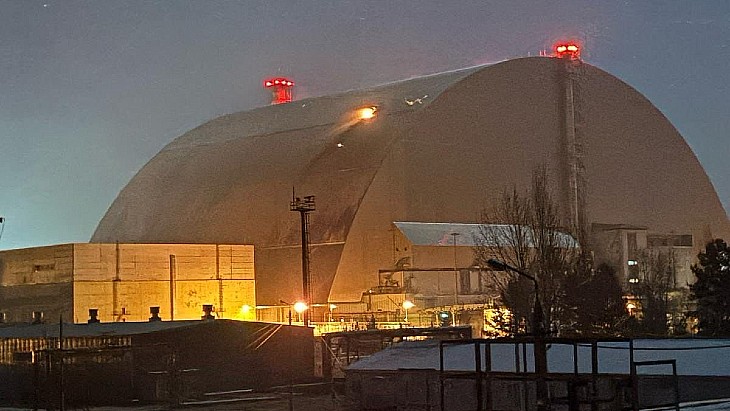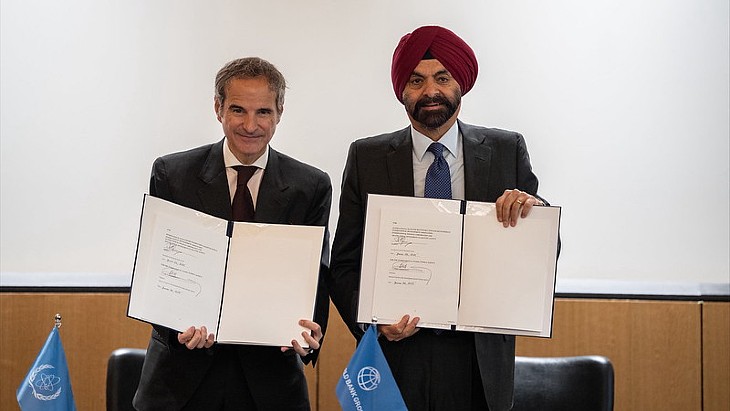Rosenergoatom completes its first corporate OSART mission
.jpg)
It was the first time that Rosenergoatom - the nuclear power plant operating subsidiary of Russian state nuclear corporation Rosatom - had hosted such a mission. It was the third such mission carried out globally - following those at the Czech Republic's CEZ, in October 2013, and France's EDF, in November 2016.
The mission to Rosenergoatom was conducted on 11-27 November by experts from Canada, China, the Czech Republic, France, Germany, Iran, Japan, the Slovak Republic, Slovenia, South Africa and the UK. They assessed Rosenergoatom and its Balakovo, Kola and Smolensk nuclear power plants in nine areas: corporate governance; independent nuclear supervision; human resources; communication; repair and maintenance; technical support; operating experience; procurement; and accident management and emergency preparedness.
The experts interviewed staff and observed meetings at Rosenergoatom's central office and the three nuclear power plants, analysed documentation, and studied the methods and content of communication with stakeholders, Rosenergoatom said.
"Particular attention was paid to the effectiveness of the application of security policies, the attitude of staff to their work and their competence, methods of support, motivation and control used by management, as well as personnel behaviour, the condition of the nuclear power plant facilities and structures," it said.
The OSART team also identified six areas where further improvement is possible: corporate governance; independent nuclear supervision; repairs; operating experience; emergency preparedness; and procurement.
According to the Rosenergoatom statement, Peter Tarren, head of the IAEA's Operational Safety Section and leader of the team said: "From the point of view of the IAEA, this mission was very successful. Experts concluded that everything is working very well at Rosenergoatom. Each organisation may strive for improvement, but what I saw here at the company is a real commitment to safety principles."
He added: "Let me emphasise that we have found very good practices used at the company, which will be useful for the world community and will increase nuclear safety, not only at the level of a specific state, but also on a global scale. Two of these are in communication, and one is in procurement."
Andrey Petrov, general director of Rosenergoatom, said the OSART mission was not merely another step for the company towards improvement, but a unique opportunity for an independent assessment of the entire company by the IAEA for first time.
"Fulfillment of the recommendations made by the IAEA team will help us to further increase the level of operational safety of nuclear power plants, and the identified good practices will contribute to improving the level of safety throughout the world," he said.
The team submitted its draft report to Rosenergoatom, which will then respond to the IAEA. The final report will be sent to the Russian government within three months.











